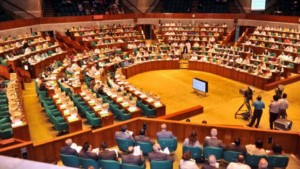by Susanne Wixforth and John Weeks on 11th June 2020
Should free movement of capital any longer be sacrosanct when it leads to predatory takeovers and regional inequalities in a globalised economy?‘Is China buying up Europe’s south?’ Such headlines have become frequent since the 2008 financial crisis. The Chinese takeovers include Greece’s biggest harbour in Piraeus, companies operating terminals in Romanian and Spanish harbours and the airport in Frankfurt-Hahn. And bear in mind that the United States accounts for 38 per cent of global foreign direct investment (FDI), Chinese capital just 2.2 per cent—though its share is increasing, especially via investments in strategic infrastructure as part of its ‘belt and road’ initiative.

European infrastructure and companies operating in the single market are open to the world because of perhaps the foremost of the famous ‘four freedoms’—the free movement of capital. The orthodox-economics claim is that free movement ensures the optimal allocation of capital.
The globalisation of capital flows, in combination with digital communication, enables capital markets to be in motion around the clock. The result is an unprecedented market interdependency, with a simultaneous loss of state regulation and increased vulnerability to crises. The second global crisis of the 21st century caused by the Covid-19 pandemic has led to a dramatic drop in share prices and company valuations.
This collapse facilitates takeovers by foreign companies. Does the European Union need a different interpretation of free movement of capital, to protect European key technologies and strategic infrastructure?
EU-wide framework
Fourteen EU member states have adopted a regulation to control FDI. The German government is considering the use of its coronavirus-linked Economic Stabilization Fund for company ownership to protect against hostile takeovers, while the French government has created an investment fund (Lac d’argent) for that purpose.
An EU-wide framework was launched by the European Parliament in March 2019 to counter takeover strategies by foreign-investment funds. The regulation established a framework for the screening of FDI which will apply from October 2020. The mildness of its provisions dates back to the ‘pre-crisis mode’ in which it was drafted. The primacy of free movement of capital, neutrality of ownership and unconditional openness to FDI are central to the regulation. Nonetheless, there is an awareness that unregulated financial capital does not necessarily lead to an allocation of resources that is in Europe’s strategic interest.
The guidelines for member states on FDI screening recently published by the European Commission reinforce this trajectory. The current economic crisis increases the risk of buyouts of strategic industries and infrastructure by foreign investors. The guidelines urge governments to maintain and strengthen key sectors. To counter the sale of European companies and industrial actors via portfolio investments, the commission, therefore, proposes ‘golden shares’. With the help of this instrument, certain shareholders—in most cases public entities—would be granted priority rights to influence company decisions.
Too cautious
Although the guidelines refer to predatory takeovers, they remain too cautious. Increased public control of FDI is justified only to safeguard public order and security—industrial policy is not a sufficient justification. Prohibition of buyouts remains rare and extreme.
Nor do the guidelines change the fact that 13 member states have no legal provisions to regulate FDI. Despite efforts to establish mechanisms facilitating coordination and sharing of information, a common strategy on capital controls remains a distant goal. Attracting foreign capital is still emphasised as an important instrument for governments to increase their competitiveness—in particular for those under high budgetary pressure, such as Italy and Greece.
Consequently, the guidelines represent an emergency plan of limited duration and scope. They aim to provide governments of member states with more room for manoeuvre for their industrial policies and to protect common European interests. They do not, however, bind the European Court of Justice. Looking at its case law, we conclude that the ECJ would not sustain proposed measures to restrict the free movement of capital.
This is established as unrestricted under article 63 of the Treaty on the Functioning of the European Union, applying both within the internal market and towards third countries, with interpretation allocated to the ECJ. The court allows of exemptions only if there is an actual and sufficient risk to a basic issue of public interest and there are not concealed economic goals. Such strictures make it almost impossible to adopt any constraints on free movement—including the ‘golden shares’ proposed by the commission.
The ECJ has also limited the scope of measures that could be exempted by public-interest considerations to specific sectors such as oil, telecommunications and electricity. Covid-19 has however brought to light the fragility and strategic importance of many other sectors, including chemicals, pharmaceuticals and food.
Weak regulation
National economies are deeply integrated into global value chains and supply networks that account for roughly two-thirds of world trade. The unlimited freedom of capital meets only weak global regulation. The result is a corporate strategy geared towards cost reduction, just-in-time supply delivery and tax avoidance. The commission’s guidelines provide only a small first step towards how European legislators should regulate the framework for foreign investments.
The presumption in EU treaties that free capital movement fosters efficiency and growth comes from neoclassical economics. Europe has a strong theoretical and policy tradition that challenges that view, which we can trace back to the great Swedish economists Knut Wicksell and Gunnar Mydral. In their ‘cumulative causation’ analysis, they demonstrated that free movement of capital—and, by implication, of labour—can reinforce regional inequalities.
Drawing on that tradition, we need a fundamental rethink of commission industrial policy.
(Susanne Wixforth is head of unit in the Europe and International Department of the German Trade Union Confederation (DGB John Weeks is co-ordinator of the London-based Progressive Economy Forum and professor emeritus of the School of Oriental and African Studies. )




